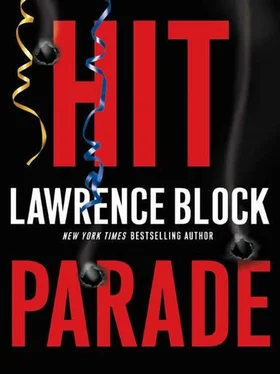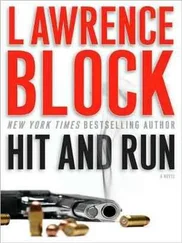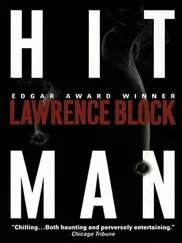When his coffee cup was empty he went into the Sundstrom bedroom and undressed, then showered in the Sundstrom bathroom, only to dry off with a Sundstrom towel. He went into the den, Harvey Sundstrom’s den, and took a Fijian battle-ax from the wall. It was fashioned of black wood, and heavier than it looked, and its elaborate geometric shape suggested it would be of more use as wall decoration than weapon. But Keller worked out how to grip it and swing it, and took a few experimental whiffs with it, and he could see how the islanders would have found it useful.
He could have taken it with him to Egmont’s house, and he let himself imagine it now, saw himself clutching the device in both hands and swinging around in a 360-degree arc, whipping the business end of the ax into Egmont’s skull. He shook his head, returned the battle-ax to the wall, and resumed where he’d left off earlier, summoning up Egmont’s image, reviewing the last moments of Egmont’s life, and making it all gray and blurry, making it all smaller and smaller, making it all go away.
In the morninghe went out for breakfast, returning in time to see an ambulance leaving Sundowner Estates through the east gate. The guard recognized Keller and waved him through, but he braked and rolled down the window to inquire about the ambulance. The guard shook his head soberly and reported the sad news.
He went home and called Dot. “Don’t tell me,” she said. “You’ve decided you can’t do it.”
“It’s done.”
“It’s amazing how I can just sense these things,” she said. “You figure it’s psychic powers or old-fashioned feminine intuition? That was a rhetorical question, Keller. You don’t have to answer it. I’d say I’ll see you tomorrow, but I won’t, will I?”
“It’ll take me a while to get home.”
“Well, no rush,” she said. “Take your time, see the sights. You’ve got your clubs, haven’t you?”
“My clubs?”
“Stop along the way, play a little golf. Enjoy yourself, Keller. You deserve it.”
The day beforehis two-week rental was up, he walked over to the clubhouse, settled his account, and turned in his keys and ID card. He walked back to the Sundstrom house, where he put his suitcase in the trunk and the little stuffed dog in the passenger seat. Then he got behind the wheel and drove slowly around the golf course, leaving the compound by the east gate.
“It’s a nice place,” he told the dog. “I can see why people like it. Not just the golf and the weather and the security. You get the feeling nothing really bad could happen to you there. Even if you die, it’s just part of the natural order of things.”
He set cruise control and pointed the car toward Tucson, lowering the visor against the morning sun. It was, he thought, good weather for cruise control. Just the other day, he’d had NPR on the car radio, and listened as a man with a professionally mellow voice cautioned against using cruise control in wet weather. If the car were to hydroplane on the slick pavement, cruise control would think the wheels weren’t turning fast enough, and would speed up the engine to compensate. And then, when the tires got their grip again, wham!
Keller couldn’t recall the annual cost in lives from this phenomenon, but it was higher than you’d think. At the time all he did was resolve to make sure he took the car out of cruise control whenever he switched on the windshield wipers. Now, cruising east across the Arizona desert, he found himself wondering if there might be any practical application for this new knowledge. Accidental death was a useful tool, it had most recently claimed the life of William Wallis Egmont, but Keller couldn’t see how cruise control in inclement weather could become part of his bag of tricks. Still, you never knew, and he let himself think about it.
In Tucson he stuck the dog in his suitcase before he turned in the car, then walked out into the heat and managed to locate his original car in long-term parking. He tossed his suitcase in the backseat and stuck the key in the ignition, wondering if the car would start. No problem if it wouldn’t, all he’d have to do was talk to somebody at the Hertz counter, but suppose they’d just spotted him at the Avis counter, turning in another car. Would they notice something like that? You wouldn’t think so, but airports were different these days. There were people standing around noticing everything.
He turned the key, and the engine turned over right away. The woman at the gate figured out what he owed and sounded apologetic when she named the figure. He found himself imagining what the charges would have added up to on other cars he’d left in long-term lots, cars he’d never returned to claim, cars with bodies in their trunks. Probably a lot of money, he decided, and nobody to pay it. He figured he could afford to pick up the tab for a change. He paid cash, took the receipt, and got back on the interstate.
As he drove, he found himself figuring out just how he’d have handled it if the car hadn’t started. “For God’s sake,” he said, “look at yourself, will you? Something could have happened but didn’t, it’s over and done with, and you’re figuring out what you would have done, developing a coping strategy when there’s nothing to cope with. What the hell’s the matter with you?”
He thought about it. Then he said, “You want to know what’s the matter with you? You’re talking to yourself, that’s what’s the matter with you.”
He stopped doing it. Twenty minutes down the road he pulled into a rest area, leaned over the seat back, opened his suitcase, and returned the dog to its position in the passenger seat.
“And away we go,” he said.
In New Mexicohe got off the interstate and followed the signs to an Indian pueblo. A plump woman, her hair braided and her face expressionless, sat in a room with pots she had made herself. Keller picked out a little black pot with scalloped edges. She wrapped it carefully for him, using sheets of newspaper, and put the wrapped pot in a brown paper bag, and the paper bag into a plastic bag. Keller tucked the whole thing away in his suitcase and got back behind the wheel.
“Don’t ask,” he told the dog.
Just over the Colorado state line it started to rain. He drove through the rain for ten or twenty miles before he remembered the guy on NPR. He tapped the brake, which made the cruise control cut out, but just to make sure he used the switch, too.
“Close one,” he told the dog.
In Kansas hetook a state road north and visited a roadside attraction, a house that had once been a hideout of the Dalton boys. They were outlaws, he knew, contemporaries of Jesse James and the Youngers. The place was tricked out as a minimuseum, with memorabilia and news clippings, and there was an underground passage leading from the house to the barn in back, so that the brothers, when surprised by the law, could hurry through the tunnel and escape that way. He’d have liked to see the passage, but it was sealed off.
“Still,” he told the woman attendant, “it’s nice to know it’s there.”
If he was interested in the Daltons, she told him, there was another museum at the other end of the state. At Coffeyville, she said, where as he probably knew most of the Daltons were killed, trying to rob two banks in one day. He had in fact known that, but only because he’d just read it on the information card for one of the exhibits.
He stopped at a gas station, bought a state map, and figured out the route to Coffeyville. Halfway there he stopped for the night at a Red Roof Inn, had a pizza delivered, and ate it in front of the television set. He ran the cable channels until he found a western that looked promising, and damned if it didn’t turn out to be about the Dalton boys. Not just the Daltons -Frank and Jesse James were in it, too, and Cole Younger and his brothers.
Читать дальше












